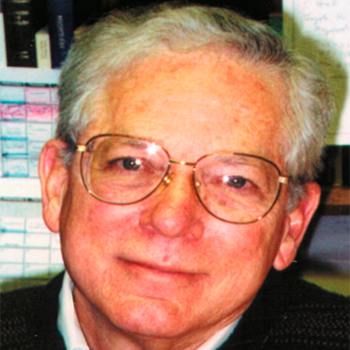Back to series



Religion’s Second-best Seller
Click here to open a Print - Friendly PDF
Everyone knows the Bible is the best-selling religious book of all time. But do you know what religious book is second? Here are five hints: (1) it was originally written in Dutch and Latin; (2) was anonymous, but later given the probable author’s name; (3) went through 1,800 printings by the eighteenth century; (4) is now available in a hundred languages; and (5) has been read by over a billion people.
Still don’t know? The answer is The Imitation of Christ, the author of which, according to tradition, was Thomas à Kempis (1380-1471).
I had tried to read this book many years ago as a teen-ager, but gave up, and it has languished on my shelf ever since. Now, a flurry of new editions and translations has renewed my interest and provoked the question: Why has this book endured so long, second only to the the Bible in popularity? By the time I had the answer, the Imitation had become a vital part of one more life.
The Imitation of Christ is a devotional work with a profound, yet simple, message. It calls us to look away from our self-sufficiency to God who is all-sufficient, then to look back with transformed vision to a world in need where service replaces self-seeking. God becomes central in our lives as we systematically bring ourselves into line with his sovereign control. This will involve self-mortification, a ruthless honesty with ourselves, a determination to change, and plain, hard work. When we have done this we will be following the pattern of Jesus’ earthly life in imitation of the Godman. Such is the essence of Thomas à Kempis’s attitude toward the spiritual life.
Distinctive Approach
The lasting power of the Imitation is based on the inherent value of its message. But other works have said similar things. This one has become a popular classic because of the way that message is cast.
 Thomas put the message in biblical form. Scholars have found anywhere from 850 to 1,200 biblical quotations or allusions. Every page in some way embodies a fundamental biblical idea. The power of Scripture surges through the work and gives it its spiritual depth. These references are not merely catalogues in some pearl-on-a-string fashion; rather, they are woven carefully into the entire fabric of the work so that they become the essence of what is said. Meditate on the following paragraph, taken from E. M. Blaiklock’s new translation, and observe the subtle, yet overwhelming, biblical orientation:
Thomas put the message in biblical form. Scholars have found anywhere from 850 to 1,200 biblical quotations or allusions. Every page in some way embodies a fundamental biblical idea. The power of Scripture surges through the work and gives it its spiritual depth. These references are not merely catalogues in some pearl-on-a-string fashion; rather, they are woven carefully into the entire fabric of the work so that they become the essence of what is said. Meditate on the following paragraph, taken from E. M. Blaiklock’s new translation, and observe the subtle, yet overwhelming, biblical orientation:
Son, you cannot possess perfect liberty unless you completely renounce your own self. They are shackled, all people of property, lovers of themselves, covetous, anxious, restless folk, seekers of luxuries rather than the things of Christ, always planning and setting up that which will not stand. For all will perish, which has not sprung from God. Hold fast this short, inclusive saying: Abandon all, and you will find all; give up desire and you will discover rest. Ponder this in your mind, and when you have fulfilled it, you will understand everything.
Another element in the format of the Imitation that creates its appeal is the angle of approach, that of Christ speaking to his servant, called “son.” The above paragraph is an illustration. Christ speaks to his own in challenge, rebuke, instruction. This keeps the presence of Christ always before the reader as a Person who speaks. The reader is also drawn to respond in prayer and dialogue with Christ. This keeps the advice from being static. As Christ speaks, as the reader prays, as both observe life’s vagaries together, a dynamic experience is created that gently compels change in the right direction. “Men swiftly change,” says Thomas, “and fast disappear; but Christ abides forever, and stands firmly right to the end.”
Looking Inward, Then Outward
There is a modernity to the style of devotion depicted in the Imitation, almost prophetic of our own day. Long before psychotherapy, Thomas was working out the intricate dimensions of an interior, personal religion. He saw piety as the wellspring of action, beginning inside, swirling around there, and working itself out. He speaks of the “interior man,” considering ourselves “interiorly,” and of our inclinations, feelings, and intentions.
There is shrewd psychological perception in “My son, sensual craving sometimes entices you to go out. But when you come home what do you bring back with you? An uneasy conscience and a distracted heart.” In response, Thomas offers the solid advice of this prayer: “Make my mind concentrate on you, forget the world, and quickly drop and reject the mental pictures of evil deeds.” (These quotations are from Henry Kloster’s new translation, entitled simply Imitation).
The entire second book contains advice about the inner life. One paragraph ends, “His visits are many to the inner man, sweet discourse, gracious consolation, great peace, and fellowship most marvelous.” This direct, personal, internalized approach to religious devotion has power because it draws us into ourselves, and then more deeply, into God.
When we turn outward from the inner man, we must focus in a healthy way on other people and interpersonal relationships. If we fail here in our quest for godliness, says Thomas, we will become egocentric. It is not enough to luxuriate in the limpid sweetness of Jesus. Christ must be made common property of ourselves and others, for he is known supremely in making himself known. His benefits are most ours when they are shared with the spiritually needy among us. We give, but do not take back; the source of strength is within us. Thomas knows well how to speak of the “empty judgments of man,” devoting an entire chapter to it.
Peace in Chaotic Times
Part of The Imitation’s appeal has been its stress on the positive qualities that characterize spiritual existence. These qualities are always present, but are most apparent (and necessary) in times of distress. The believer gladly bears up, patiently endures, thankfully accepts his burden, calmly suffers, and peacefully rests. Thomas’s advice is:
Seek true peace, not on earth, but in heaven, not in men, nor in other things created, but in God alone. For the love of God you must undergo all things gladly, toils, undoubtedly, and sorrows, temptations, harassments,
anxieties, compulsions, weaknesses, injuries, insults, reproaches, humiliations, confusions, rebukes and despisings.
 Peace is available; gladness is there, but not if we isolate ourselves from the pressures of life. Indeed, it is precisely within the soul-numbing upheavals of fallen existence that we find ourselves refreshed. Those who seek to escape the sorrows of life also escape the grace of God. God’s grace is for those who need it. If we deny our need, we deny God and establish ourselves as the source of our own strength.
Peace is available; gladness is there, but not if we isolate ourselves from the pressures of life. Indeed, it is precisely within the soul-numbing upheavals of fallen existence that we find ourselves refreshed. Those who seek to escape the sorrows of life also escape the grace of God. God’s grace is for those who need it. If we deny our need, we deny God and establish ourselves as the source of our own strength.
The difficult time in which Thomas lived drove him to find a reliable source of help. It also allowed him to speak with quiet assurance and authority because he spoke from experience.
The exiled sons of Eve sigh because this day is bitter and wearisome. The days of this time are few and evil, full of sorrows and pressing trials; where a man is soiled by many sins, snared by many passions, shackled by many fears, torn apart by many cares, distracted by many questionings, tangled with worthless things, crowded round by many errors, worn by many toils, burdened by temptations, weakened by pleasures and tortured by want.
Historically, the end of the fourteenth century and the beginning of the fifteenth was a turbulent era, full of political unrest, war, economic insecurity, moral corruption, and religious uncertainty. Popes, antipopes, emperors, and kings all vied for power and crushed the simple people, the source of their wealth and power. Thomas learned in the fires of life how to find peace of soul when all else seemed to be collapsing around him. This, too, gives a timeless quality to the Imitation. When, as Thomas so clearly sees, is life anything but uncertain?
What Counts Most?
Another aspect of the Imitation’s endurance is that values are put in proper order: God, then the things of earth; spiritual, then material things; eternal, then temporal things:
- Vanity of vanities and all is vanity, except to love God and serve Him alone.
- It is vanity to accumulate perishable riches and trust in them.
- There is nothing therefore to be gained by acquiring and multiplying external possessions.
- The reason why you are often upset and depressed is because you haven’t left yourself completely and separated yourself from earthly things.
- The Life you lead should be one of dying to self. The more you do so, the more you live in union with God.
Thomas also stresses embodying Christian virtue in concrete action, rather than merely theorizing:
- Resist your evil inclinations at the beginning and break off your evil habits, otherwise it will be harder to do so later on.
- Tackle your worst habits first, that is far better than knowing the answer to a complicated problem.
- Lord, let me know what I ought to know, love what I ought to love, praise what pleases you, esteem what you deem precious and reject what you abhor.
Finally, the appeal of Thomas’s Imitation comes from its comprehensive nature. It covers virtually all aspects of human existence from birth to death. He deals with riches, knowledge, guilt, hope, honor, resignation, joy, wisdom, truth, and obedience.
Criticisms
Some, such as Roman Catholic historian Philip Hughes and Canon Henry Liddon, have found fault with this devotional classic because of its inattention to doctrinal exactitude, or for its gloominess. Thomas did not spend enough time on the entire syllabus of theology, and at times seems to denigrate the world in rather harsh terms. The charge is not without merit. But in Thomas’s defense, he was writing from within the faith, and not intending to develop a systematic theology. He was writing devotionally from the heart. As for his gloominess, he lived in a gloomy age, so it is not surprising that he takes a dim view of politics or worldly advancement.
The wonder (and appeal of the work) is that the author was able to rise above the seemingly hopeless situation of his day to take a firm stand of faith, allowing him to see God’s good hand in spite of the circumstances. Let those complain who will. The Imitation has been a source of comfort and strength to innumerable people for five centuries. When Dag Hammerskjold died, it was the only book in his immediate possession. Edith Cavell and Dietrich Bonhoeffer had it with them the night before they died. Matthew Arnold pronounced the book the most excellent document ever conceived by the mind of man, after the Bible. Ignatius of Loyola called it the most precious book on devotion ever written. Fontanelle extolled it as the most influential book ever written by the hand of man.
We can conclude that the Imitation, faults and all, has secured a place for itself as long as mankind shall last.
For those who are interested in reading this perennial favorite, several new editions are available, as well as the standard works that can be found in libraries. E.M. Blaiklock has newly translated the work and written a helpful introduction in The Imitation of Christ (Nelson). Henry Kloster has two offerings: Imitation: Selection Edition, and a two-volume complete edition, topically arranged. Two large print editions are Of the Imitation of Christ (Keats) and Imitation of Christ (Catholic Book Publishers), a new, revised edition by Clare L. Fitzpatrick.
To extend this reading further, Baker has republished Thomas a Kempis’s Meditations on the Life of Christ. Reading this goes a long way toward answering objections to Thomas’s theology.

Walter A. Elwell
ProfessorWalter A. Elwell (Ph.D., University of Edinburgh) is emeritus professor of biblical and theological studies at Wheaton College in Wheaton, Illinois, where he taught for nearly thirty years. Elwell earned his B.A. ’59 and M.A. ’61 from Wheaton College. He has edited numerous biblical reference works, including the Baker Theological Dictionary of the Bible and the Evangelical Dictionary of Theology. For a number of years Dr. Elwell served as book editor for Christianity Today. He has been a consultant to both the Evangelical Christian Publishers Association and the Evangelical Book Club, and a member of the Society of Biblical Literature, Institute for Biblical Research, Evangelical Theological Society, and Chicago Society of Biblical Research.

 COPYRIGHT: This publication is published by C.S. Lewis Institute; 8001 Braddock Road, Suite 301; Springfield, VA 22151. Portions of the publication may be reproduced for noncommercial, local church or ministry use without prior permission. Electronic copies of the PDF files may be duplicated and transmitted via e-mail for personal and church use. Articles may not be modified without prior written permission of the Institute. For questions, contact the Institute: 703.914.5602 or email us.
COPYRIGHT: This publication is published by C.S. Lewis Institute; 8001 Braddock Road, Suite 301; Springfield, VA 22151. Portions of the publication may be reproduced for noncommercial, local church or ministry use without prior permission. Electronic copies of the PDF files may be duplicated and transmitted via e-mail for personal and church use. Articles may not be modified without prior written permission of the Institute. For questions, contact the Institute: 703.914.5602 or email us.
-
Recent Podcasts
A Welcome Change in Apologetics
by Randy Newman, Aimee Riegert on April 19, 2024We’re burdened for our friends who don’t know...Read More
-
Questions That Matter Podcast – Samuel James and Digital Liturgies
by Samuel James, Randy Newman on April 19, 2024
-
The Side B Stories – Dr. James Tour’s story
by Jana Harmon, James Tour on April 12, 2024
-
Recent Publications
Isn’t Morality Relative?
by Christopher L. Reese on April 1, 2024It is widely accepted in the Western world...Read More
-
Do Muslims and Christians Worship the Same God?
by Andy Bannister on March 1, 2024
-
Artificial Intelligence and Its Impacts on Humanity
by John Lennox on February 13, 2024
0
All Booked
0.00
All Booked
0.00
All Booked
22140
GLOBAL EVENT: Keeping the Faith From One Generation To Another with Stuart McAllister and Cameron McAllister, 8:00PM ET
https://www.cslewisinstitute.org/?event=global-event-keeping-the-faith-from-one-generation-to-another-with-stuart-mcallister-and-cameron-mcallister-800pm-et&event_date=2024-05-17®=1
https://www.paypal.com/cgi-bin/webscr
2024-05-17

Next coming event
Days
Hours
Minutes
Seconds
GLOBAL EVENT: Keeping the Faith From One Generation To Another with Stuart McAllister and Cameron McAllister, 8:00PM ET
On May 17, 2024 at 8:00 pmSpeakers

Walter A. Elwell
Professor
Team Members

Walter A. Elwell
ProfessorWalter A. Elwell (Ph.D., University of Edinburgh) is emeritus professor of biblical and theological studies at Wheaton College in Wheaton, Illinois, where he taught for nearly thirty years. Elwell earned his B.A. ’59 and M.A. ’61 from Wheaton College. He has edited numerous biblical reference works, including the Baker Theological Dictionary of the Bible and the Evangelical Dictionary of Theology. For a number of years Dr. Elwell served as book editor for Christianity Today. He has been a consultant to both the Evangelical Christian Publishers Association and the Evangelical Book Club, and a member of the Society of Biblical Literature, Institute for Biblical Research, Evangelical Theological Society, and Chicago Society of Biblical Research.





